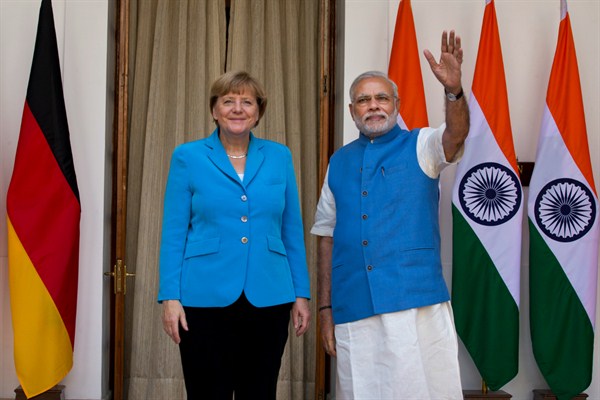German Chancellor Angela Merkel’s visit to India in early October was the second summit-level meeting she has had with Prime Minister Narendra Modi in the span of a month. These talks have themselves been preceded by a flurry of other high-level exchanges. Both sides seem keen to dispel any notion of a lack of momentum in bilateral relations, a view that has arisen ever since Modi failed to meet Merkel in Berlin during his trip to Germany last year.
Germany is eager to take advantage of Modi’s renewed push for economic growth through clean energy initiatives and manufacturing. Germany has the technical know-how and India the vast market with major growth potential. For its part, India is seeking to leverage the new market opportunities it is offering Germany to gain deeper German technical collaboration for its high-end industrialization plans, in addition to securing German influence for lowering the European Union’s trade barriers. Geopolitically, both sides feel that they punch below their weight around the world and believe they can find mutual ways to boost their influence, especially at the United Nations, where both are angling for permanent seats on the Security Council. However, the success of this burgeoning German-Indian partnership will depend on the strength of the economic glue that binds it.
Although bilateral trade between India and Germany doubled in the past 10 years, it has been waning more recently: Its current level of 16 billion euros ($18 billion) is actually lower than the 17.4 billion euros in trade in 2012. Against the backdrop of that plateau in the trade relationship, Merkel brought almost her entire Cabinet to India for the third round of intergovernmental consultations with New Delhi in early October, and in keeping with German practice in countries of sizable commercial interest, she was also accompanied by a large business delegation. Germany is keen to diversify its exports to new markets like India, given a weak eurozone and slowdown in China.

